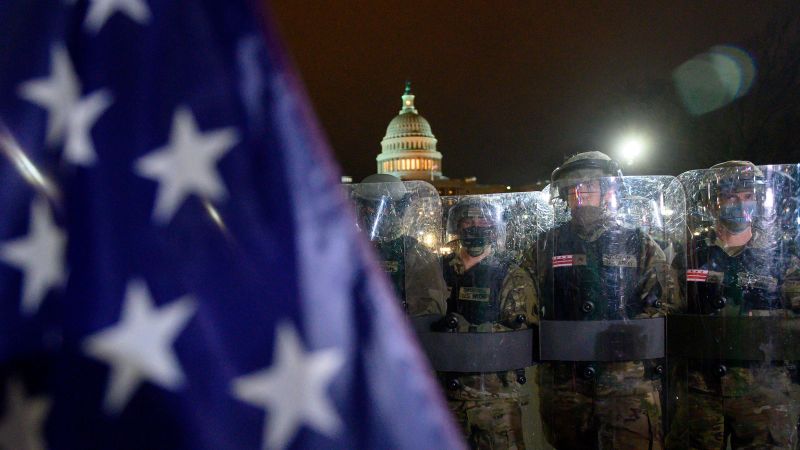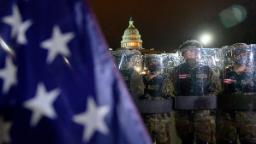

CNN
—
The commander of the Washington, DC, National Guard, Major Gen. William Walker, “strongly” considered deploying troops to the US Capitol on the afternoon of January 6, 2021, without approval from his superiors even if it meant he would have to resign the next day, according to the final report from the House January 6 select committee.
“Major General Walker himself understood he had to wait for approval from Secretary (Ryan) McCarthy to deploy his forces. But as he waited on that video call for hours, he did strongly consider sending them anyway,” the report says. “He turned to his lawyer and said, ‘Hey, you know what? You know, we’re going to go, and I’m just going to shoulder the responsibility.’”
The committee’s findings are based on its interview with Walker and other National Guard officials who were with him on January 6. The panel also interviewed top Defense Department officials involved in the National Guard response.
National Guard officials who were with Walker on January 6 when pro-Trump rioters breached the US Capitol testified that Walker “seriously contemplated aloud the possibility of breaking with the chain of command,” the report says.
“Should we just deploy now and resign tomorrow?” one National Guard lieutenant recalled Walker bluntly putting it, the report states.
“I would have done just that,” Walker said, “but not for those two letters” from his superiors curtailing Guard redeployment, according to the committee report.
Ultimately, Walker waited to deploy DC Guard troops until he received approval to do so.
Controversy has swirled over the delay in sending National Guard troops to the US Capitol on January 6 with members of both parties seeking to blame one another for the lack of reinforcements that day.
The committee’s final report undercuts claims by Donald Trump that he authorized the deployment of thousands of National Guard troops prior to January 6, as well as findings from the GOP analysis of security breakdowns that day which places blame squarely on Democratic leaders in Congress.
The committee also noted that because the Justice Department was leading the federal agency response to January 6, Trump’s plan to replace the acting attorney general with Jeffrey Clark would have been disastrous.
The Justice, Homeland Security and the Defense departments discussed who would take the lead, as Trump was considering installing Clark, who was sympathetic to him blocking the congressional certification of the vote.
“Had Clark ultimately been appointed, and had he been placed in charge of the Federal security response to the violence on January 6th, the situation could have been materially worse,” the committee writes in its report.
A law firm representing Clark sent out a new statement on his behalf Thursday night, attacking the House panel as too political and calling for a Republican-led House investigation into ” intelligence and security perimeter failures that led to a group of rioters bursting into the Capitol.”
“The January 6 Committee has been a political and public-relations bust,” the statement says. “This is why, on its way out the door, the Committee is desperately trying to make a splash with criminal referrals it was obvious from the very start its members were going to make in an effort to try to destroy their conservative political opponents.”
A group of House Republicans earlier this week published a report on security failures at the Capitol around January 6.
